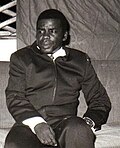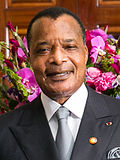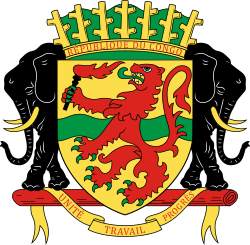| No. | Portrait | Name
(Birth–Death) | Election | Term of office | Political party | President(s) |
|---|
| Took office | Left office | Time in office |
|---|
| Republic of the Congo (1963–1969) |
| 1 |  | Alphonse Massamba-Débat
(1921–1977) | 1963 | 16 August 1963 | 19 December 1963 | 125 days | MNR | | Himself
(1963–1968) |
|---|
| 2 |  | Pascal Lissouba
(1931–2020) | — | 24 December 1963 | 15 April 1966 | 2 years, 112 days | MNR | | Alphonse Massamba-Débat

(1963–1968) |
|---|
| 3 |  | Ambroise Noumazalaye
(1933–2007) | — | 6 May 1966 | 12 January 1968 | 1 year, 251 days | MNR |
|---|
| 4 |  | Alfred Raoul
(1930–1999) | — | 4 August 1968 | 30 December 1969 | 1 year, 148 days | Military |
|---|
| Himself
(1968–1969) |
|---|
| Marien Ngouabi

(1969–1977) |
|---|
| People's Republic of the Congo (1973–1992) |
| Post abolished (31 December 1969 – 28 July 1973) | | Marien Ngouabi

(1969–1977) |
|---|
| 5 |  | Henri Lopes
(1937–2023) | — | 28 July 1973 | 18 December 1975 | 2 years, 143 days | PCT |
|---|
| 6 |  | Louis Sylvain Goma
(born 1941) | 1979 | 18 December 1975 | 7 August 1984 | 8 years, 233 days | PCT |
|---|
| Joachim Yhombi-Opango
(1977–1979) |
|---|
| Denis Sassou Nguesso

(1979–1992) |
|---|
| 7 |  | Ange Édouard Poungui
(born 1942) | 1984 | 7 August 1984 | 7 August 1989 | 5 years | PCT |
|---|
| 8 |  | Alphonse Poaty-Souchlaty
(1941–2024) | 1989 | 7 August 1989 | 3 December 1990 | 1 year, 118 days | PCT |
|---|
| – |  | Pierre Moussa
(born 1941) | — | 3 December 1990 | 8 January 1991 | 36 days | PCT |
|---|
| (6) |  | Louis Sylvain Goma
(born 1941) | — | 8 January 1991 | 8 June 1991 | 151 days | PCT |
|---|
| 9 |  | André Milongo
(1935–2007) | — | 8 June 1991 | 15 March 1992 | 281 days | Independent |
|---|
| Republic of the Congo (1992–present) |
| (9) |  | André Milongo
(1935–2007) | 1992 | 15 March 1992 | 2 September 1992 | 171 days | Independent | | Denis Sassou Nguesso

(1979–1992) |
|---|
| Pascal Lissouba

(1992–1997) |
|---|
| 10 |  | Stéphane Maurice Bongho-Nouarra
(1937–2007) | — | 2 September 1992 | 6 December 1992 | 95 days | UPADS |
|---|
| 11 |  | Claude Antoine Dacosta
(1932–2007) | 1993 | 6 December 1992 | 23 June 1993 | 199 days | Independent |
|---|
| 12 |  | Joachim Yhombi-Opango
(1939–2020) | — | 23 June 1993 | 27 August 1996 | 3 years, 65 days | RDD |
|---|
| 13 |  | Charles David Ganao
(1926–2012) | — | 27 August 1996 | 8 September 1997 | 1 year, 12 days | UFD |
|---|
| 14 |  | Bernard Kolélas
(1933–2009) | — | 8 September 1997 | 15 October 1997
( deposed ) | 37 days | MCDDI |
|---|
| Post abolished (15 October 1997 – 7 January 2005) | | Denis Sassou Nguesso

(1997–present) |
|---|
| 15 |  | Isidore Mvouba
(born 1954) | 2007 | 7 January 2005 | 15 September 2009 | 4 years, 251 days | PCT |
|---|
| Post abolished (15 September 2009 – 23 April 2016) |
| 16 |  | Clément Mouamba
(1943–2021) | 2017 | 23 April 2016 | 12 May 2021 | 5 years, 20 days | PCT |
|---|
| 17 |  | Anatole Collinet Makosso
(born 1965) | 2022 | 12 May 2021 | Incumbent | 4 years, 175 days | PCT |
|---|


















